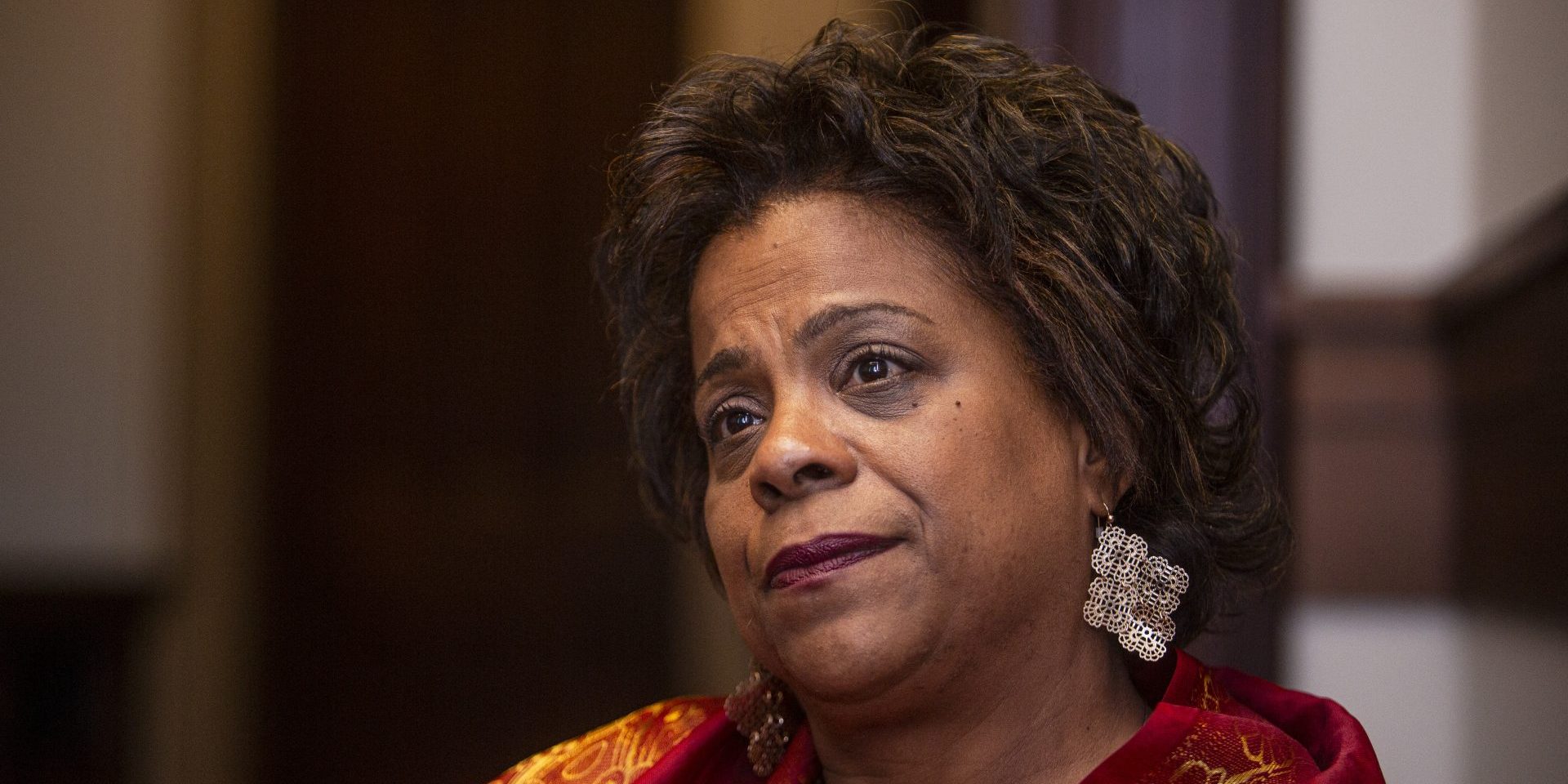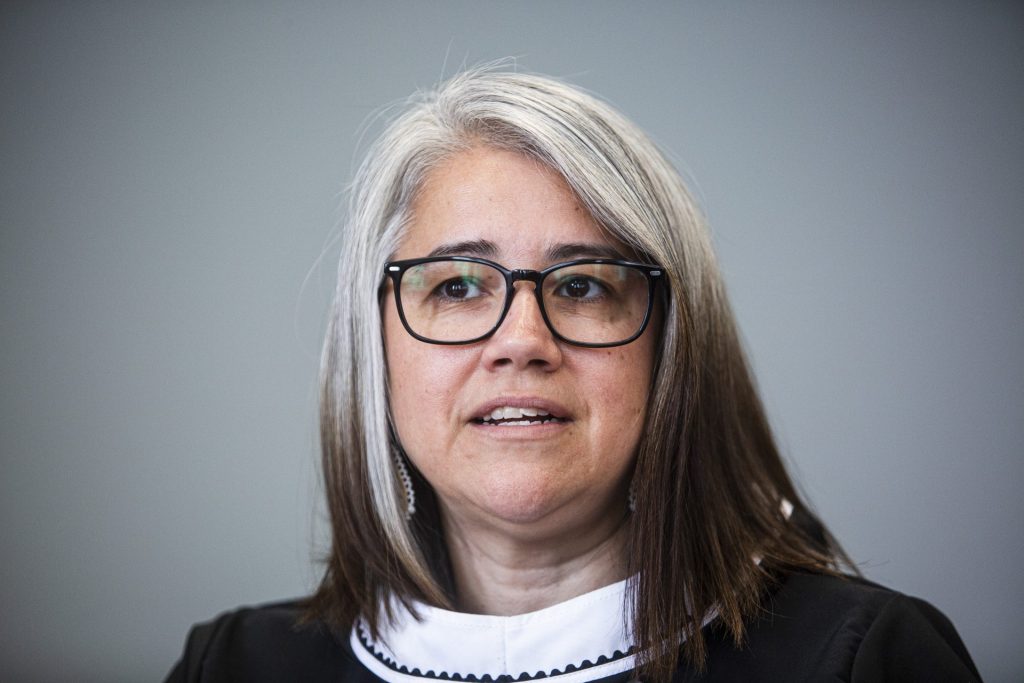Saskatchewan, Newfoundland, Nunavut, and Northwest Territories all open to pharmacare talks, but say they’re not taking place

Both Saskatchewan and Nunavut are open to conversations about a national pharmacare program, but say they are not in active talks with the federal government. Newfoundland and Labrador says it has reached out to Health Canada to “re-engage” in conversations, but that the federal government has not yet responded.
These are some of the answers to questions sent by The Hill Times to the provinces and territories that do not have signed bilateral agreements for national single-payer pharmacare funding as outlined by the Pharmacare Act passed last October.
The jurisdictions that currently do not have deals are Alberta, New Brunswick, Newfoundland and Labrador, Nova Scotia, Northwest Territories, Nunavut, Quebec, Ontario, and Saskatchewan.
Nova Scotia, Quebec, and Ontario were the only provinces that did not respond to The Hill Times’ questions.
An Aug. 14 statement from Saskatchewan’s Ministry of Health reads, “Any proposed national pharmacare program must be designed and implemented in partnership with our current provincial systems. While Saskatchewan has expressed a willingness to resume discussions about this with the federal government, there have been no negotiations scheduled.”

An Aug. 13 statement from Nunavut Health Minister John Main’s office said, “At this time, the Government of Nunavut is not engaged in any active discussions” regarding pharmacare.
“Nunavut is open to future discussions regarding a pharmacare agreement. Nunavut continues to reiterate that flexibility in funding agreements is pivotal to account for the distinct circumstances of the territory,” the statement continued.
Newfoundland and Labrador’s Department of Health and Community Services said that it “supports the federal government investing greater funding for medicare services, including pharmacare. … We have reached out to Health Canada staff to re-engage in these discussions, and look forward to working with them.”
A follow-up email statement from the Newfoundland department on Aug. 15 informed The Hill Times that Health Canada has not yet responded to the outreach.
The Hill Times reached out to the provinces and territories regarding their stance on pharmacare as doubts continue to grow as to whether the current Liberal government led by Prime Minister Mark Carney (Nepean, Ont.) will forge ahead with negotiating agreements.
The Hill Times asked the nine provinces and territories currently without bilateral deals the following questions:
- Is the province or territory currently engaged in a conversation with the federal government for national pharmacare bilateral funding?
- Is it interested in reaching an agreement for national pharmacare bilateral funding?
- If Carney’s government does not go ahead with negotiating further pharmacare funding, will the province or territory seek its share of funding that could have come through a pharmacare agreement?
The passing of the Pharmacare Act, which occurred on Oct. 10, 2024, was a component of the confidence-and-supply agreement between Justin Trudeau’s Liberal minority government and the NDP, then led by Jagmeet Singh. The act includes multiple components that are meant to work “towards the implementation of national universal pharmacare.”
The act stipulates that Ottawa negotiate bilateral agreements for federal money to ensure single-payer—as in government-funded—coverage for specific pharmaceuticals related to diabetes treatment and contraception.
The Trudeau government set aside $1.5-billion for these bilateral pacts in the federal budget in 2024, and signed deals with British Columbia, Manitoba, and Prince Edward Island before Carney won the Liberal leadership on March 9, 2025. After Carney’s swearing-in as prime minister on March 14, a deal with Yukon was announced on March 20.
A federal election was called just days later. The Liberal platform said it would “protect” pharmacare, calling it a “critical” service and part of a “strong public health-care system that [Conservative Leader] Pierre Poilievre would cut.”
But since the election, the Liberals have not announced any other deals. The Liberals won 169 seats on April 28, four shy of a majority win.
The Hill Times asked the Prime Minister’s Office by email on Aug. 12 if it has directed Health Minister Marjorie Michel’s (Papineau, Que.) office to continue pharmacare talks, but did not receive a response.
The Hill Times also reached out to Michel’s office and asked if the minister would continue discussions on pharmacare; and if there were no plans to do so, would the federal government compensate the provinces and territories that did not have agreements.
“We will continue to protect the four signed pharmacare agreements and the Canadian Dental Care Plan,” said Guillaume Bertrand, Michel’s spokesperson, by email on Aug. 13. “Universal, accessible, and publicly funded health care is a point of pride for Canadians and it underpins our economic strength. Our new government is discussing with our provincial and territorial partners how we can support them for better health outcomes for Canadians.”
Some jurisdictions say $1.5-billion funding promise not enough
In their responses to The Hill Times, both Alberta and the Northwest Territories questioned whether the feds’ original price tag—$1.5-billion for all 13 agreements—would be enough to sustain appropriate levels of coverage in their jurisdictions.
A communications officer for the Government of Northwest Territories said in an Aug. 13 email that his government “is open to discussions if the funding offered is sufficient to support programs that reflect the unique needs of NWT residents and the realities of our healthcare service delivery. The current national pharmacare model does not adequately address these needs.”
The statement also said, “There has been no indication of available funding through a pharmacare agreement” and that “any future conversation should prioritize increased federal investment in health programs that are responsive to the distinct challenges and priorities of the Northwest Territories.”

Alberta’s Ministry of Primary and Preventative Health Services said in an Aug. 11 statement: “While Ottawa originally committed $1.5-billion over five years to cover contraceptives and diabetes medications, it has already committed more than $900-million to just three provinces—raising serious concerns about the program’s long-term sustainability.”
The bilateral funding for B.C., Manitoba, P.E.I., and Yukon adds up to approximately $936-million, which is 62 per cent of the total funding allotted for bilateral pacts in the 2024 federal budget.
Alberta’s email also stated that it “has made it clear that we would like to receive our share of federal funding to enhance Alberta’s existing comprehensive coverage, but we have not received a response.”
An Aug. 12 statement from New Brunswick’s health department didn’t specifically point to concerns with funding, but said that the federal model proposed in the Pharmacare Act “does not align” with the province’s existing public drug program.
“We have proposed that the federal government fund contraception access as a first step in advancing pharmacare in New Brunswick,” reads the statement. “This would align with our province’s upcoming initiative to provide free contraception, ensuring more equitable access to reproductive health services, and any additional federal funding being allocated to making our existing drugs plans more affordable for New Brunswickers.”
Three pharmacare-related processes continue behind the scenes
The Pharmacare Act also set the stage for three projects, with related reports to be submitted to the federal government one year after the act received royal assent, which will be Oct. 10, 2025.
Canada’s Drug Agency (CDA), formerly known as the Canadian Agency for Drugs and Technologies in Health, is the lead on two of those initiatives.
The law tasks the agency with creating a list of essential prescription drugs and related products, and to develop advice for Health Canada about a national bulk purchasing strategy for pharmaceuticals.
Then-health minister Mark Holland provided further directions to the agency in a letter on Dec. 4, 2024, to CDA CEO Suzanne McGurn. He wrote that the organization is “well-positioned to provide expert advice in support of the Government of Canada’s advancement of national pharmacare.”
The Hill Times requested an interview with the CDA to discuss the publicly-funded agency’s pharmacare-related work and its view on how it could be used as a part of how federal and provincial drug programs purchase medicines. The CDA declined, saying that it “cannot comment on how the government intends to use the work.”
It did tell The Hill Times that it recently completed consultations related to both tasks. “Our report will be provided to Health Canada this fall as required by the legislation,” a CDA spokesperson wrote in an Aug. 12 email.
The third information-gathering process related to the Pharmacare Act will produce recommendations from an expert committee “respecting options for the operation and financing of national, universal, single-payer pharmacare,” as per the legislation.
Appointed by the Trudeau government, the committee currently has three members: chair Dr. Nav Persaud; Linda Silas, president of the Canadian Federation of Nurses Unions; and Amy Lamb, executive director of the Indigenous Pharmacy Professionals of Canada.
The committee’s work continues and most of the consultations have been completed, according to Persaud, a Canada Research Chair in Health Justice, a practicing physician, and a professor at the University of Toronto’s family and community medicine department. However, he didn’t rule out additional consultations in a phone interview with The Hill Times on Aug. 12.
Persaud noted he is unable to discuss any potential recommendations.
He described the committee’s work as more “technical” in nature than that of a previous government-appointed committee that was tasked with studying possible pharmacare models. That report, which recommended a single-payer model, was released in 2019.

The current committee’s work, chaired by Persaud, focused on speaking with sectors that would be impacted by pharmacare, including the pharmaceutical industry, clinicians, and pharmacies. The committee also connected with Indigenous representatives.
The committee took “the wording in the act very seriously” when it pursued consultations, focusing their work on how a single-payer program—the model dictated by the legislation—could be financed, Persaud said.
But it didn’t limit its study to some of the law’s other components.
“Our mandate is not restricted to the bilateral agreements. First of all, certainly, our mandate is not restricted to diabetes treatments and contraceptives,” said Persaud, referring to the fact that only two classes of pharmaceutical products are outlined in the Pharmacare Act. “We are looking more broadly than that.”
Persaud told The Hill Times that committee members had observed that bilateral deals had not been signed with all 13 provinces and territories, “but [bilateral agreements are] certainly not the only model” to implement pharmacare.
When asked about other possible models, Persaud pointed to the Canada Health Act and how the federal legislation sets up an exchange of funding from Ottawa on the condition that provinces and territories adhere to a set of principles for health-care delivery.
But he also noted that medication is not one of the insured health services covered by the 41-year-old Canada Health Act.
“I’m not necessarily saying that pharmacare would be directly based on the Canada Health Act, but I’m saying that that is another model out there. And also, just to be clear … I’m not talking about the committee’s recommendations,” Persaud said.
As to whether the recent change in government impacted the committee’s work, Persaud said no, as members knew when they were appointed last year that an election was likely to take place in 2025.
“So, in some ways, I understood that this was the design, that this would be a type of message in a bottle from the former government to the present government. I think that was the intent. Not that it’s a very important thing from our perspective as a committee because we would go about the work in the same way regardless,” Persaud said.
He also said he wanted to “emphasize that the work of the committee is not political.”
“Issues like access to medicine shouldn’t really depend on the outcome of an election, to some extent, especially if you accept that access to medicines is a right,” said Persaud, who supports single-payer pharmacare. “So, that’s part of the reason I think it has been that political changes have not been front of mind for us because our focus is more technical.”
tsanci@hilltimes.com
The Hill Times
Editor’s note: This article was updated on Aug. 18, at 2:10 p.m. ET. to include a response from Newfoundland’s Department of Health and Community Services stating that Health Canada has not yet responded to the province’s request to re-engage in pharmacare discussions.






 LICENSING
LICENSING PODCAST
PODCAST ALERTS
ALERTS













